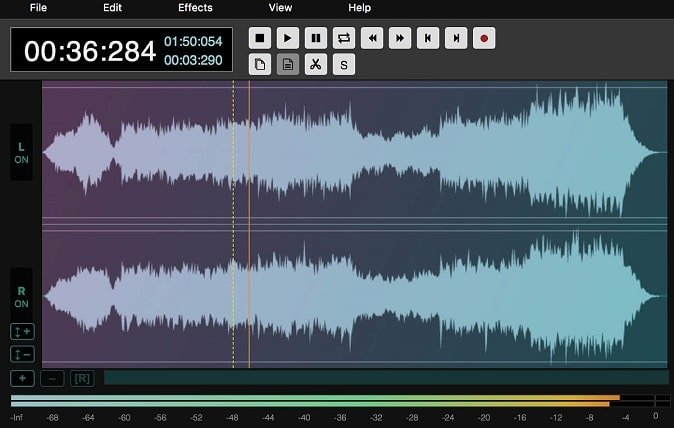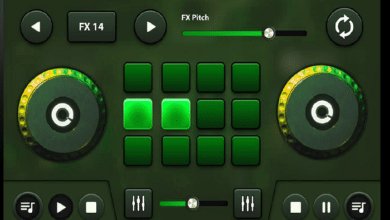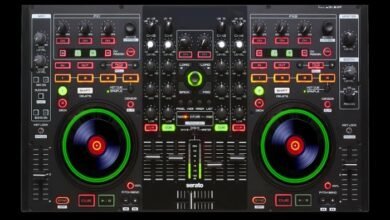The Power of Online Music Editors: A Comprehensive Guide

In the realm of music production, online music editors have emerged as indispensable tools for professionals and hobbyists alike. These web-based platforms offer a wide range of features, from basic audio editing to complex arrangement and mixing, all accessible through a simple browser interface. This blog post delves into the capabilities of online music editors, exploring how they can elevate your music creation process, offering insights into top platforms, essential features, and tips to maximize your musical creativity.
Online Music Editors: What Are They?
Online music editors are tools that allow users to create, edit, and produce music directly from a web browser without the need for installing software on their computers. These platforms are designed to be accessible, user-friendly, and versatile, catering to both beginners and seasoned musicians. They often include a variety of features such as multi-track mixing, effects, sample libraries, and collaboration capabilities that make digital music production more accessible than ever.
The Benefits of Using Online Music Editors
The primary advantage of using an online music editor is convenience. Whether you’re on a laptop, tablet, or smartphone, these tools provide the flexibility to work on your projects from any location with internet access. Other benefits include:
- No software installation required: Saves space on your devices and ensures you’re always using the most updated version of the tool.
- Collaboration features: Many online editors allow multiple users to work on a project simultaneously.
- Cost-effective: Many online music editors offer free versions or affordable subscription plans that are less expensive than traditional software.
Top Online Music Editors to Consider
Several online music editors have risen to prominence, each offering unique features and tools for music production. Here are a few popular choices:
- Soundation: Known for its robust feature set that rivals traditional DAWs, ideal for beginners and intermediates.
- Soundtrap by Spotify: Offers an intuitive interface and seamless integration with Spotify, allowing for easy music sharing.
- BandLab: A free platform that provides unlimited project storage and a vast library of loops and samples.
- Audiotool: Features modular synthesis and real-time collaboration, suitable for more advanced producers.
Essential Features of Online Music Editors
To choose the right online music editor, consider the following essential features:
- Multi-track editing: Allows you to layer multiple sounds and manage them individually.
- Built-in instruments and effects: Essential for enhancing your tracks without external plugins.
- Export options: Look for platforms that support various file formats and quality options.
- Real-time collaboration: Enables you to work with other artists and producers from different locations.
- User interface: Should be intuitive and easy to navigate, even for beginners.
Tips for Maximizing Productivity with Online Music Editors
To get the most out of your online music editor, follow these tips:
- Utilize keyboard shortcuts: Most editors have shortcuts that can speed up your workflow significantly.
- Experiment with templates: Many editors offer project templates that can help kickstart your creative process.
- Regularly save your work: Ensure your internet connection is stable and take advantage of auto-save features.
- Explore tutorials and resources: Many platforms provide learning materials to help you fully utilize their features.
Common Challenges in Online Music Production
While online music editors are powerful, they come with challenges that can affect your productivity. Common issues include latency during live recordings, limited processing power compared to desktop software, and dependence on internet connectivity. To mitigate these issues, plan your sessions during off-peak internet usage times, use wired connections for stability, and adjust settings to optimize performance on your device.
The Future of Music Production: Trends and Predictions
The future of music production is increasingly leaning towards cloud-based platforms. These developments predict even more advanced features becoming standard, such as AI-based music composition assistance and integrated social media platforms for direct publishing. As technology advances, online music editors will likely become even more integral to the music production landscape.
Conclusion
Online music editors democratize music production, making it accessible to anyone with an internet connection. As you explore these tools, remember that the best editor is one that fits your specific needs and workflow. By embracing the convenience and features offered by these platforms, you can push the boundaries of your creativity and produce music that resonates with your audience.
Discover the excitement of Shillong Teer with the perfect dream number! If you’re looking for a reliable way to boost your chances, the Shillong Teer dream number is your go-to guide. This number, derived from dreams, helps players predict winning shots in the popular archery-based lottery game. Whether you’re a seasoned player or new to Shillong Teer, understanding how to interpret your dreams can make all the difference. Stay ahead in the game by using the Shillong Teer dream number and turn your dreams into real winnings today!
FAQs
1. What internet speed is required for using online music editors effectively? A stable connection with at least 10 Mbps is recommended for a smooth experience, especially when collaborating in real-time.
2. Can I use online music editors for professional production? Absolutely. Many online editors are robust enough to handle professional-grade music production, depending on your project needs.
3. Are online music editors safe to use? Yes, reputable platforms use encryption and secure cloud storage to protect your projects and personal data.
4. Do I lose my work if the internet connection drops? Most online editors have auto-save features that periodically save your progress, but it’s crucial to ensure your connection is reliable during sessions.
5. How do I share my projects from an online music editor? Most platforms offer direct sharing options via links, social media, or exporting files that can be shared manually.





